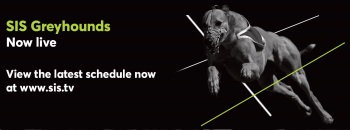On behalf of the greyhound industry, I would like to thank Animal Rising for their contribution to greyhound racing.
Firstly – without them, many fewer people would have been aware that the Greyhound Derby was taking place two Saturdays ago. The media were all over it leading up to the final and a bumper crowd was in attendance. The old adage about ‘no such thing as bad publicity’. .
Secondly – they did more to galvanise greyhound racing than any GBGB initiative. There was a lot of love for Towcester and its management for taking them on. It was great to see some of the other tracks go onto social media to voice their solidarity.
Most importantly –Animal Rising opened up the debate.
I believe that there are two types of critics of the greyhound industry. Those who look to exploit it – ‘donate now’ – CAGED UK, RSPCA etc etc.
And those who they exploit. The people who ask ‘is it true that most ex-racers are put to sleep?’ ‘What really happens to the pups that are too slow?’, ‘do they really stick chewing gum between their toes to make them slower?’
Now while we may roll our eyes at the naivete, we have hardly covered ourselves in glory defending our corner.
So bring on the debate and engage the nation!!
Let greyhound racing – the most regulated, legislated, and scrutinized of all animal based sports, defend itself alongside horseracing, equestrian, angling, sheepdog trials and the rest.
My concern is that Animal Rising folds before that debate takes place.
Maybe their middle class mummies and daddies will make them get jobs?
Fingers crossed the debate goes happen.
There is a risk of course. If the great British public turn against the use of animals in sport. . . that is the price of democracy.
But my bet is that a nation of animal lovers will turn against them once they understand their real, normally hidden, agenda.
It was only when I was trying to find an appropriate picture of the late great Harry Williams that I remembered he had been honoured in 2012 for his services to the industry.
Checking through the roll of honour with the benefit of hindsight, the vast majority of people on it look entirely worthy of that recognition.
Some of the others left me shaking my head in disbelief at the antics of the Greyhound Writers Association.
Archie Newhouse? Head of the NGRC but a pale imitation of the man he replaced, Fred Underhill. Under Fred’s rule, tracks largely did as they were told and he took them on regularly. Ex journalist Archie was undoubtedly a Sporting Life block vote.
Tom Kelly? Our darkest hour. No doubt a Racing Post block vote (and one of the reasons I left the GWA several years ago).
Which left me thinking.
Who is the most worthy person never to have appeared on the list?
It didn’t take a lot of thinking about – John Curran.
But selecting John is not like the tea lady in a government department getting a CBE for pouring a million cups of PG tips over 50 years.
I am talking about genuine merit and significant worth.
I have no doubt that John Curran is the cleverest person I have ever met in this industry.
But intellect alone wouldn’t have done the job during a lifetime of service to greyhound racing.
John has a politician’s charm (where necessary) and a trade union leader’s gritty aggression (applied sparingly).
John understands company law, can unpick the Rules of Racing, is quite comfortable debating Health & Safety, or animal welfare legislation.
But it was his ability to engender loyalty and trust, and a strategic brain that would be the envy of a chess master, that forged John’s legacy.
When Kinsley first joined the NGRC ranks, John immediately offered his skills – honed as a union negotiator and local Labour party official – to the small tracks.
They jumped at the chance.
At that stage the BGRF abused by the big track promoters who took 90% of the prize money grants and almost all of the capital expenditure grant. A situation that was as resented by the betting industry as it was by the owners and trainers.
From day one – Curran was a pit bull.
In addition to his alliances with small track promoters, he convinced the owners, trainers and breeders reps that he had their best interests at heart.
I have dozens of stories about John’s achievements that sadly cannot be told. Most would be breaking a confidence. A few might cost me a court appearance.
There were some colourful times in the corridors of power over the last three or four decades. Deals, conspiracies, schemes, power struggles, coups, treachery, even the occasional threat of violence (“I’ll have someone break your legs” said one promoter to a fellow director). The same gangster threatened another director with financial ruin.
An ideal environment for a battle hardened Yorkie.
But here is a thought.
Had John Curran not led from the front in the long and bitter battle for the financial scraps that eventually led to equal distribution, most of the small tracks would no longer be here.
While the likes of Charles Chandler, Jarvis Astaire, Clive Feltham and John Cearns argued that the big wedges should go to the tracks that ‘represented the best of greyhound racing’ (Walthamstow, Wembley, Wimbledon, Hall Green etc), where are they now?
Every penny from the BGRF would not have saved any one of them.
Curran, Haynes, Gilling and Locke-Hart battled for better track equipment and racing surfaces. Take John Curran (and regular ally Billy King) out of the equation and it simply wouldn’t have happened at all.
To be perfectly frank – without John Curran – I’m not sure there would be much left of the British greyhound industry.
Finally – a couple of things relating to Harry Williams funeral.
An update from Laura Langstaff: “Family flowers only please. Donations in lieu to Durham District Retired Greyhounds and Jack Berry House IJF.”
And from Rita Williams: “The last song on leaving the funeral parlour is; House of the Rising Sun by The Animals. Harry went to Jarrow grammar school with Alan Price. Harry asked his mother to buy a guitar on credit to join the young group but she said ‘no’! What if!”
Music’s loss . . .














